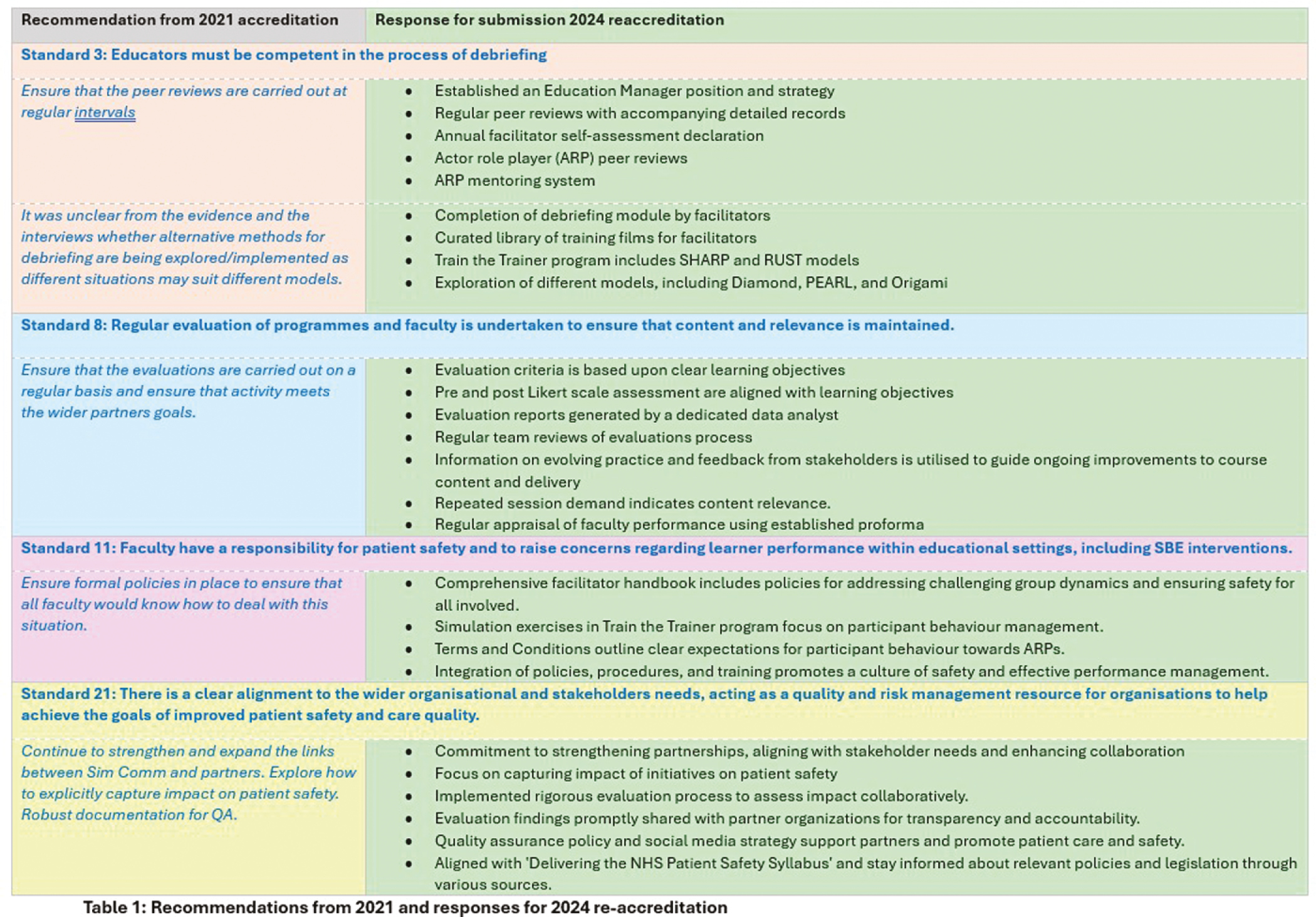
This abstract presents a comprehensive overview of our organisation’s journey towards re-accreditation with the Association for Simulated Practice in Healthcare (ASPiH), the UK’s national simulation accrediting body. Following initial accreditation in March 2021, several recommendations were made, necessitating a thorough evaluation of specific areas of our simulation education practices. The primary focus was on addressing identified needs, ensuring alignment with accreditation standards, and fostering continuous improvement in simulation-based education [1].
Over the intervening three-year period, we reviewed the ASPiH recommendations and gradually revised our simulation education practice, encompassing updates to our programme evaluation, faculty training, and stakeholder engagement. Working with the original standards, in tandem with the updated standards, we wanted to work in a progressive way, matching to both the original and current 2023 standards [2]. Every staff member within the organisation was involved and led on a dedicated area of improvement, with regular standards update action planning sessions, consulting stakeholders, simulated patients and patient groups. We worked with a three-year Gantt chart, watching our progress in a visual manner.
Through diligent efforts, significant progress has been made in enhancing simulation education practices. A comprehensive summary can be found in table 1, but these are key take-aways: Peer reviews are undertaken at regular intervals ensuring educator competence in the debriefing process, addressing the recommendations of Standard 3. Regular programme and faculty evaluations are conducted to maintain content relevance, meeting the requirements of Standard 8. Formal policies have been established to address faculty responsibilities for patient safety and learner performance concerns, as per Standard 11, and robust documentation for quality assurance has been developed, aligning with Standard 21, Table 1-A36.

 |
By addressing the recommendations outlined by ASPiH in 2021, we have strengthened our simulation education practices, ensuring alignment with accreditation standards and organisational goals. Accreditation and re-accreditation with ASPiH serve as a catalyst for organisational growth, fostering a culture of excellence and innovation in simulation education [3]. By embracing recommendations and driving continuous improvement initiatives, our organisation remains at the forefront of advancing simulation-based healthcare education, ultimately enhancing patient outcomes and healthcare delivery. From this position, we feel able to support other organisations as they work towards initial or re-accreditation, aligning with the new standards.
Authors confirm that all relevant ethical standards for research conduct and dissemination have been met. The submitting author confirms that relevant ethical approval was granted, if applicable.
1. Crawford SB. ASPiH standards for simulation-based education: process of consultation, design and implementation. BMJ Simulation and Technology Enhanced Learning. 2018;4(3):103–104.
2. Diaz-Navarro C, Laws-Chapman C, Moneypenny M, Purva M. The ASPiH Standards—2023: guiding simulation-based practice in health and care. Available from: https://aspih.org.uk.
3. Bohnert CA, Lewis KL. Certification, accreditation and professional standards: striving to define competency, a response to ASPiH Standards for Simulation-Based Education: Process of Consultation, Design and Implementation. BMJ Simulation and Technology Enhanced Learning. 2018;4(3):105–107.